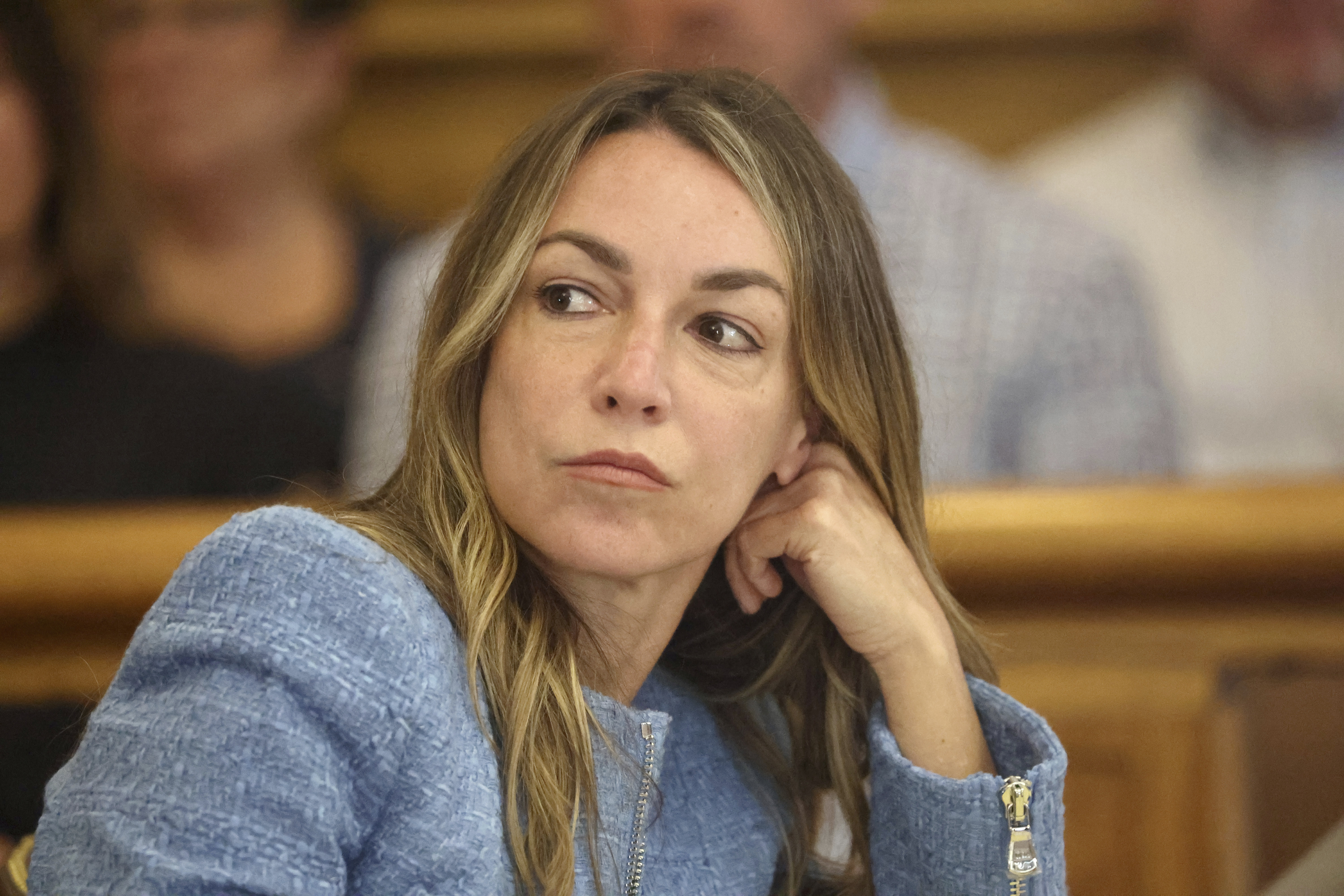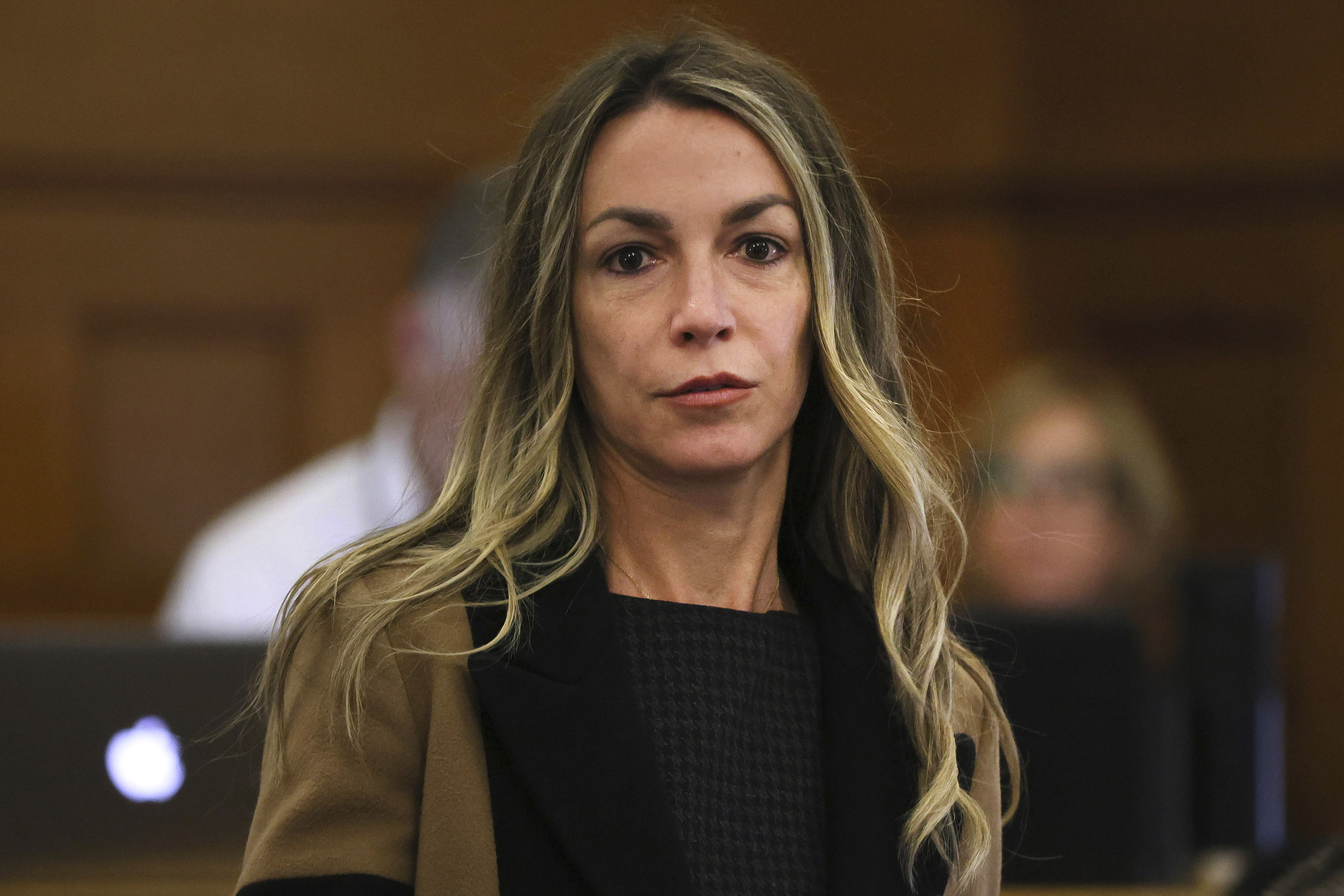What to Know
- Karen Read is accused of killing her boyfriend, Boston Police Officer John O'Keefe, with her SUV during a snowstorm in Canton in January 2022
- A mistrial was declared in her case in July, and the prosecution had vowed to retry her
- The defense claims that several jurors revealed to them that the jury was in agreement that she was not guilty on the charges of second-degree murder and leaving the scene of a crash resulting in death; they now want those charges dismissed
- Both sides are appearing Wednesday before the Supreme Judicial Court of Massachusetts to make their arguments
The latest chapter in the Karen Read saga moved to Massachusetts Supreme Judicial Court Wednesday, where Read's attorneys argued that two of the three charges against her should be dismissed, citing evidence that the jury had unanimously voted to acquit her on the charges of second-degree murder and leaving the scene in the January 2022 death of her police officer boyfriend John O'Keefe.
Read was seated in the courtroom alongside her parents Wednesday, as Martin G. Weinberg, an appellate lawyer for Read, told the state's highest court that the values at stake here are too important.
Weinberg told the court that Read is entitled to a post-trial jury voir dire by the trial court. He said today's appeal speaks to the core issues “regarding double jeopardy, protections that safeguard defendants, in this case Ms. Read, from re-prosecution for the very same offenses from which a prior jury was discharged without manifest necessity, without her consent, and we now know based on the representations of four jurors, indirectly a fifth, no contradiction from any of the seven or eight other jurors, that there is a trustworthy, corroborated, and, we contest, uncontradicted showing that the prior jury reached a unanimous decision to acquit Ms. Read of two of the three charges in a multiple-count indict that she was tried on in Norfolk County.”
According to Read's defense, after a mistrial was declared in June, five jurors came forward to say that they were deadlocked only on a manslaughter count and had agreed that she wasn't guilty on the other counts. But they hadn't told Judge Beverly Cannone, who ruled in August that Read can be retried on all charges because there was no verdict announced in open court.
The defense has argued that affidavits from the jurors "reflect a clear and unambiguous decision that Ms. Read is not guilty" and support their request for a evidentiary hearing on whether the jurors found her not guilty on the two charges.
Read's defense also argued Wednesday that Judge Cannone abruptly announced the mistrial in court without first asking each juror to confirm their conclusions about each count. "There is no indication that the court gave any consideration to alternatives, most notably inquiry regarding partial verdicts," according to the defense brief. "And counsel was not given a full opportunity to be heard. The court never asked for counsel's views, or even mentioned the word mistrial."
The justices pushed back with questions Wednesday, asking if Read's attorneys had an opportunity in court when the jury sent multiple notes about impasse, and when the mistrial was declared to talk about what should happen next. Weinberg contended that there was an opportunity but not a responsibility because the law places the burden on the Commonwealth.
Prosecutors have said that there's no basis for dismissing the charges of second-degree murder and leaving the scene of the accident.
They noted in their brief to the court that the jury said three times that it was deadlocked before a mistrial was declared. Prosecutors said the "defendant was afforded a meaningful opportunity to be heard on any purported alternative."
"The defendant was not acquitted of any charge because the jury did not return, announce, and affirm any open and public verdicts of acquittal," they wrote. "That requirement is not a mere formalism, ministerial act, or empty technicality. It is a fundamental safeguard that ensures no juror's position is mistaken, misrepresented, or coerced by other jurors."
A retrial on the charges is currently set to begin in January, though both sides asked Monday for it to be delayed until April 1.
It could take months for the Supreme Judicial Court to issue a ruling following Wednesday's oral arguments.




